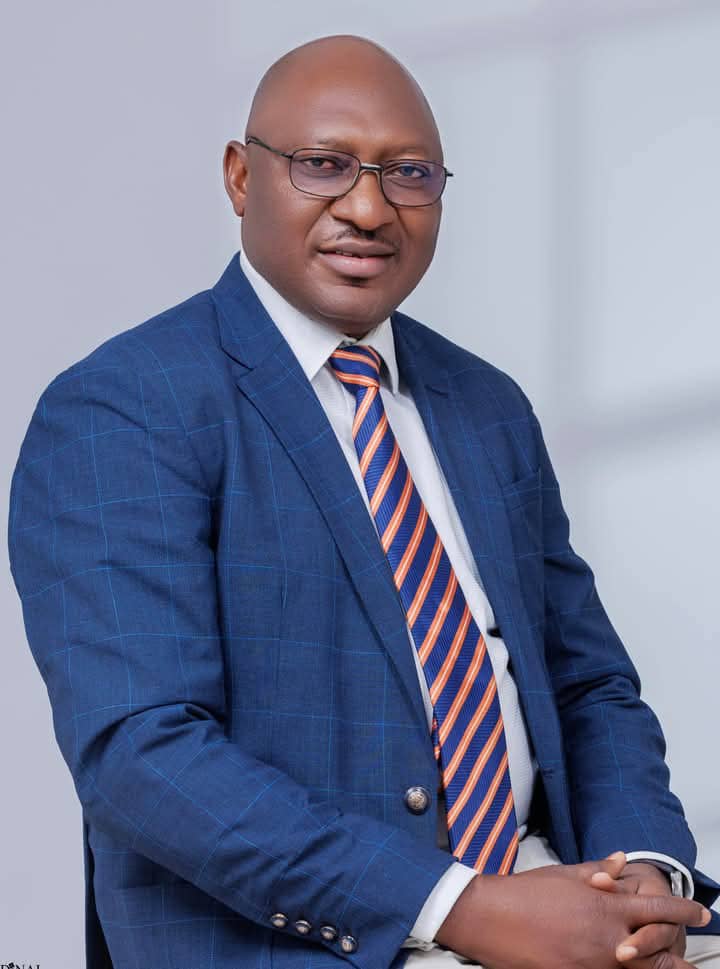Opinion
Broadband penetration and internet connectivity

By Sonny Aragba-Akpore
When it initiated National Broadband Plan (NBP) for 2020-2025,the Nigerian Communications Commission (NCC) had a modest projection of 70% penetration by the turn of 2025.
As at 2020,the penetration according to NCC stood at about 32% and by all calculations and computations,70% maybe attainable if all things were equal.
With 43% recorded as at April 2024,analysts think that 70% in 2025 maybe unrealistic.
Industry players’ fears stem from funding especially at a time when Foreign Direct Investments ( FDIs) are dwindling and with paucity of foreign exchange and the rising exchange rates,there are palpable fears that the growth envisioned may be far away.
But the government is optimistic about the realizations of the projected 70% by 2025 ,based on a number of factors chiefly on the advent satellite broadband technology which is seen to be disruptive and bound to make a difference.
The government also thinks that if the fibre optic ring being built comes on stream,it will propel the growth beyond the 70% projections by 2025.
The government seeks to address the country’s significant broadband penetration gap by implementing the National Broadband Plan (NBP 2020-2025).
The NBP 2020-2025 programme aims to achieve a broadband penetration target of 70% and population coverage of 90% by 2025.
To improve the nation’s low internet connectivity, the recently announced plans to expand the country’s existing infrastructure by an additional 90,000 kilometres (km) of fibre optic cables will be a boost to connectivity via broadband.
The project, when completed, is expected to increase the country’s fibre optic cable from its current level of about 35,000 km to around 125,000 km.
Furthermore, the significant expansion will place Nigeria as Africa’s third-largest terrestrial fibre optic backbone, behind South Africa and Egypt.
With a slight rise by 1.0% month on month and 2.5% year on year to 94.4m in April 2024, according to the data from the Nigerian Communications Commission (NCC),Broadband connections have maintained an upward increase since September 2023, except for a brief moderation in January 2024.
NCC says that mobile broadband accounts for a substantial portion (over 99%) of Nigeria’s broadband connections because of the convenience and relatively low cost of acquiring mobile lines. Consequently, the upward trend in broadband connections can be linked to the sustained growth in active mobile lines.
Due to the modest monthly rise in broadband connections, the nation’s broadband penetration rate increased slightly to 43.5% in March from 43.1% the previous month.
FDIs are on a steady decline and this affects growth in the sector and Association of Licenced Telecommunications Operators Of Nigeria (ALTON) is worried.
“As indicated by last year’s National Bureau of Statistics (NBS) report, which highlighted a decline in Foreign Direct Investment (FDI), we are apprehensive that this trend may persist. The dynamics of the exchange rate are influencing many aspects of the industry,” its Chairman Gbenga Adebayo is quoted as saying.
Adebayo explained that investment downturn,is a major nightmare.,
“The current investment figures are a clear indicator of the challenges facing the industry. This is adversely affecting the expansion of network infrastructure, and we fear that FDIs may continue to decline, further impacting the performance of operators.”
Nigeria was encouraged by a World Bank report which states that every 10% increase in broadband penetration can enhance a country’s Gross Domestic Product (GDP) by at least 4.6%.
Buoyed by this ,the government swiftly saw expanding broadband services in Nigeria, as an urgent matter which is aimed to tackle a variety of socio-economic challenges, such as economic growth, broadening the tax base, and enhancing digital literacy and educational standards.
This was the reason that led to the estab of a second National Broadband Plan (NBP 2020-2025) after successfully reaching about 25% penetration milestone with the first plan (NBP 2013-2018).
The NBP 2020-2025 among other ambitious objectives, include achieving internet speeds of 15Mbps in rural areas and 25Mbps in urban areas by 2025.
Additionally, it aims for the interconnection of 90% of all Local Government Areas by fiber and seeks to attain 70% population penetration. Another goal is ensuring that 100% of tertiary institutions are within 5km of a fiber Point of Access.
Moreover, the plan targets reducing the average cost of data to N390/Gb or less and establishing at least one local assembly or manufacturing plant for smart devices within Nigeria, further promoting the nation’s technological advancement and self-sufficiency.
As at March 2024,internet subscribers base stood at 164,368,292 .Of this figure,GSM accounts for 163,895,185.
ISPs accounted for 213,876 while Voice Over Internet Protocol (VoIP) accounted for 238,139 and fixed/ cable connections stood at 21,092.
By March 2024 too,the number of ISPs stood at 255 and these include the followings:
Spectranet Ltd,Astramix Ltd,VDT Comms Ltd,Cobranet Ltd,Ngcom Ltd,MainOne, an Equinix Company,Hyperia Ltd,I-World Networks Ltd.
There are Inq. Digital Nigeria Ltd (formerly Vodacom),Galaxy Backbone Limited,
Dotmac Technologies Ltd,Radical Tech Network Ltd,Cyberspace Network Ltd,
Suburban Broadband Ltd ,IPNX,Tizeti Network Ltd among others.
The International Telecommunications Union(ITU) is of the view that Artificial Intelligence (AI) may be the elixir for massive penetration of broadband.
In its “The State of Broadband 2024: Leveraging AI for Universal Connectivity” which it released reveals that emerging technologies stand to revolutionize the way decisions are taken and services are provided.
The report highlights how AI is already reshaping the delivery of traditional services for human well-being in sectors such as government, education, healthcare and finance.
The analysis also identifies challenges associated with AI and other emerging technologies. These include energy consumption, misinformation, reinforcement of biases and gender discrimination.
Commissioners focused on how to mitigate risks of emerging technologies while maximizing the benefits.
“The use of Artificial Intelligence is not new, but recent advancements in data, computing power, and algorithms are driving innovative services,” said Carlos Slim, Founder and President of Grupo Carso, Co-Chair of the Commission. “The rapid development of Generative AI highlights its potential for original content and new applications. We must redesign talent and retrain workers in digital skills to maximize these benefits.”
An estimated 2.6 billion people around the world remain offline, according to the International Telecommunication Union (ITU), the UN Agency for Digital Technologies.
While overall Internet use is increasing, the benefits of access are unevenly distributed, reinforcing persistent digital divides affecting women and people in countries with lower economic development. The elderly and people with disabilities are among other groups being left behind.
“Broadband is fundamental to ensure that everyone can benefit from digital technologies when so many people are still offline around the world,” said ITU Secretary-General Doreen Bogdan-Martin, Co-Vice Chair of the Commission. “AI and other emerging technologies can help efforts to achieve universal meaningful connectivity, and it’s our job to make sure this happens in a way that is responsible for people and the planet.”
ITU Broadband Commission reviewed progress on its 2025 Advocacy Targets, comprising seven objectives for action in broadband development and universal connectivity. One target for mobile broadband affordability is close to being achieved. A target for gender equality in access to broadband has been achieved for some countries, although not globally.
The Commission noted that AI and emerging technologies can drive progress on broadband and the SDGs. However, balancing the promotion of AI benefits while managing the challenges is a key task for policy-makers who are “racing to catch up” to the implications of the technologies.
“Having two thirds of the world’s population now online is a cause for celebration. But with only half as many connected in least-developed countries, and even less among women, the new report shows the urgent work still to be done,” said UNESCO Director General Audrey Azoulay, Co-Vice Chair of the Commission. “We must also address the risks faced by those online, through better governance of digital platforms, ethical use of AI and massive upscaling in digital skills, including media and information literacy.”
The report reviews how AI solutions can accelerate progress on broadband advocacy targets aimed at getting everyone online and achieving the UN Sustainable Development Goals (SDGs).
“Emerging technology trends such as artificial intelligence are anticipated to add trillions to the global digital economy,” said Rwanda’s Minister of Information Communication Technology and Innovation Paula Ingabire.
“The ability to harness artificial intelligence to revolutionize access to broadband and other services as well as boost productivity for different sectors will require massive investments in the building blocks including power, connectivity and computing resources, particularly in emerging economies.”
Opinion
Hon. Prof Nnamchi’s Low Social Media Presence Doesn’t Define His Output- A Reply To X User’s Observation

By Titus Agbo
A user on X, formerly Twitter, named Mechelito@Onyema_7, claimed that Hon. Professor Paul Sunday Nnamchi, the member representing of Enugu East/Isi Uzo Federal Constituency in the House of Representatives doesn’t post about the insecurity issues in Eha-Amufu and his efforts to impact his constituents on his X handle, @sunday_nnamchi. The user supported his claim with a screenshot of Nnamchi’s X account page.
However, it’s worth noting that Professor Nnamchi’s low online presence doesn’t necessarily reflect his efforts and output. He was raised by Catholic priests and has a humble disposition. Before venturing into politics, he was involved in humanism, providing free computer training to students in his local government area, Enugu East. This initiative, which aims to expose students to information and communication technology (ICT) education, has trained over 2,000 students as he has since expanded it to accommodate his constituents from Isi Uzo immediately he was elected into the National Assembly.
# Key Achievements
-Scholarships*: Nnamchi has offered scholarships to hundreds of indigent students from various communities within the constituency, including non-indigenes residing in Enugu East/Isi Uzo. Sewed school uniforms for pupils in primary schools and facilitated employments for a few constituents.
– *Infrastructure Development*: He deployed ₦300 million worth of solar-powered streetlights to communities in Enugu East Local Government Area last year and plans to replicate same in Isi Uzo this 2025.
– *Education and Healthcare*: Nnamchi has built and renovated classroom blocks, provided medical outreach programs, and offered free medical treatments and medications to constituents who couldn’t afford them.
– *Security*: He raised a motion on the Eha-Amufu killings on the floor of the House of Representatives on the 19th December, 2023 prompting the House to urge the Inspector-General of Police and the Chief of Army Staff to deploy adequate security personnel to Eha-Amufu and also directed the National Emergency Management Agency, (NEMA) to provide relief materials to the affected victims.
Professor Nnamchi also issued a strongly worded press statement in December 2024 reminding the relevant security agencies of the need to step up their operations in Eha-Amufu. The motion and the subsequent press statement issued the following year when the hoodlums struck again in 2024 were widely reported by both online and major newspapers as can be observed with a few examples of the publications below.
– “Lawmakers Seek Urgent Action To Address Insecurity In Enugu State” by Gloria Essien, Abuja (Voice of Nigeria online, December 4, 2024)
– “Enugu attacks: Reps urge FG to intensify efforts against insecurity in S/E” (Vanguard Newspaper, December 4, 2024)
– “Task FG to address insecurity in South East” by Ndubisi Orji (Sun Newspaper, December 5, 2024).
Nnamchi has sponsored 36 establishment and amendment Bills and numerous motions as at March 2025. The Order Paper, an authoritative in-house journal of the National Assembly, adjudged him the most performing legislator from the Southeast in 2024 ¹.
I want to assure the above X user that all Hon Professor Nnamchi’s social media accounts will be put into proper use henceforth to keep constituents like him updated with Professor Nnamchi’s legislative and constituency engagements.
Titus Agbo, a public affairs analyst wrote from Enugu
Opinion
5G,IoT and AI to boost global GDP by 2030

By Sonny Aragba-Akpore
With Mobile technologies and services now generating around 5.8% of global Gross Domestic Product (GDP) a contribution that amounts to about $6.5 trillion of economic value, there are strong projections that by 2030, this figure will rise to almost $11 trillion, or 8.4% of GDP.
Global System of Mobile Communications Association (GSMA) says much of this will be driven by countries around the world increasingly benefiting from the improvements in productivity and efficiency brought about by the increased take-up of mobile services and digital technologies, including 5G, Internet of Things (IoT) and Artificial Intelligence (AI).
The GSMA recently introduced the 5G Connectivity Index to provide insights into 5G performance in 39 markets in order to encourage informed decision-making.
In terms of Economic Impact,
the GSMA emphasizes the economic benefits of mobile technologies and services, including 5G, projecting that they will contribute significantly to GDP growth by 2030.
“The GSMA provides specific reports and analyses on 5G in different regions, such as Sub-Saharan Africa, Asia ,Middle East among others highlighting the progress and challenges of 5G deployment in specific areas.”
In Sub Saharan Africa for instance with particular attention on Nigeria,South Africa,Egypt,Kenya and Botswana among others some measure of progress in deployment has been recorded.
The rollout of 5G has brought immense benefits across multiple industry sectors, particularly those involving internet of things (IoT) and artificial intelligence (AI) applications in which the real-time transfer of data is crucial.
More broadly, the adoption of 5G is expected to accompany increased data use across the globe, with forecasts anticipating mobile data traffic of over 300 exabytes per month by 2030, more than twice the volume consumed in 2024 according to Statista.
And with a third of global population expected to be covered by this fifth generation (5G) networks ,a technology that has defined new ways of communication by 2025 ,GSMA
says the technology has surpassed growth projections of all times.
“5G subscriptions increased by 163 million during the third quarter 2024 to total 2.1 billion. 5G subscriptions reached close to 2.3 billion by the end of 2024 accounting for more than 25 percent of all global mobile subscriptions.
“4G subscriptions continue to decline as subscribers migrate to 5G” according to GSMA.
As of the first quarter of 2024, there were nearly two billion 5G connections worldwide, with 185 million new additions. This is expected to grow to 7.7 billion by 2028.”
Statistics show that 5G is the fastest-growing mobile broadband technology, reaching 1.5 billion connections by the end of 2023.
It only took four years to reach this number, compared to 10 years for 3G and more than five years for 4G.
“5G is more than a new generation of technologies; it denotes a new era in which connectivity will become increasingly fluid and flexible.5G Networks will adapt to applications and performance will be tailored precisely to the needs of the user” GSMA submits.
By covering one-third of the world’s population , impact on the mobile industry and its customers will be profound according to GSMA.
To deepen the spread of 5G ,GSMA is working closely with the mobile operators pioneering 5G, “by engaging with governments, vertical industries including automotive, financial services, healthcare providers, transport operators, utilities and other industry sectors to develop business cases for 5G.”
And In order to accelerate the growth and spread, many operators are said to be deploying
AI technology as part of an integral part of telecoms operators’ strategic and operational plans.
“Operators are making important advancements in the deployment of AI technology, which is serving as a transformative force shaping the telecoms industry. By deploying autonomous AI-based systems, operators can enhance operational efficiency, customer satisfaction and security, while also creating new revenue opportunities”.
China, South Korea, the United Kingdom, Germany, and the United States are the leading countries with robust 5G coverage in the world.
Since the first commercial launches of the fifth generation of mobile networks in late 2018, these five countries have emerged as leaders because multiple companies in these countries have deployed networks and are selling compatible devices. Countries including Switzerland and Finland are up and comers in 5G development, though they have limited deployment.
In China there are three Companies leading in deployment.
The world’s largest 5G network was launched by the three largest Chinese network operators Oct 31, 2019, according to the state-run news agency Xinhua. These are China Mobile, China Unicom, and China Telecom which all activated their networks in less than five months after they were issued 5G licenses.
Each of the network operators offered their 5G services at $18 per month in 50 Chinese cities at the beginning of the launch.
GSMA expects 36% of China’s mobile users to be using 5G by 2025. That’s about 600 million subscribers, who would also make up 40% of the entire global 5G market by this year.
This is all despite efforts made by the United States government to hamper the progress of Chinese vendors, though those efforts may affect how Chinese companies may expand into the global market.
In South Korea,SK Telecom and Korea Telecom run as the main competitors for the South Korean 5G market.
SK Telecom acquired spectrum in the 3.5 GHz and 28 GHz frequencies to prepare for deploying 5G.
In April of 2019, the Enterprise claimed to be the first mobile carrier in the world to launch 5G services to work on 5G smartphones. SK Telecom asserted an edge over rival Verizon, as the former launched 5G services available at the same time as Samsung Galaxy S10 5G smartphone launched in South Korea. Verizon launched mobile 5G services in the U.S. before a 5G enabled smartphone was available to U.S. consumers.
SK Telecom also conducted tests with a 5G Standalone (SA) Core (a core not reliant on the 4G network) for their 5G network in cooperation with Samsung Electronics.
The world’s largest 5G network was launched by the three largest Chinese network operators Oct 31, 2019, according to the state-run news agency Xinhua. These are China Mobile, China Unicom, and China Telecom which all activated their networks in less than five months after they were issued 5G licenses. Each of the network operators offered their 5G services at $18 per month in 50 Chinese cities at the beginning of the launch.
“What we are seeing is a concerted effort by the Chinese — the operators, vendors, and government regulators — to deploy 5G as quickly as possible,” Chris Nicoll, principal analyst at ACG Research, pointed this out in a November 1, 2019 SDxCentral article.
With all of these players working together, the three network operators had collectively deployed nearly 86,000 5G base stations peaked over 130,000 by the end of 2019. The latter number breaks down into China Unicom and China telecom, with each planning to install 40,000 base stations, and the market leader China Mobile to install 50,000.This was the projection by 2019 but they have since overshot this by the beginning of 2024.
The International Telecommunication Union (ITU), says 5G coverage reached 40% of the world’s population in 2023 with an uneven coverage and distribution with developed countries having more coverage than low-income countries:
In Europe ,68% of the population is covered and
Americas had 59% of the population covered while
Asia-Pacific has 42% of the population covered as at 2023.
Arab States have 12% of the population covered.
Commonwealth Independent of States (CIS) had 8% of the population covered.
ITU figures show Africa,s coverage rose to 10 % of the population by 2023 .
The ITU also notes that 90% of the world’s population is covered by 4G, but 55% of people without access to 4G live in low-income countries because In low-income countries, 3G is often the only technology available to connect to the Internet.
The ITU develops and adopts international regulations and global standards to enable the harmonization and implementation of broadband mobile networks.
In Africa, around a dozen nations have launched services including Botswana, Kenya, Mauritius, Madagascar, Nigeria, Seychelles, South Africa, Tanzania, Togo, Zimbabwe, and Zambia but Africa is a patchwork of 54 countries.
And penetration is predicted to be slow.
By 2027, Ericsson predicts that 80 percent of phone users in Europe will have 5G service.
At the same time, 5G subscriptions in Africa, home to 1.4 billion people, May stagnate at a little over 10 percent. Why will so few people in Africa get access to 5G services?
China, South Korea, the United Kingdom, Germany, and the United States remain the leading countries with robust 5G coverage in the world.
While many countries are already providing robust services,Africa remains on the outskirts of 5G services.
The countries in Africa that have launched 5G networks, include South Africa with its roll out
In March 2022, when the Independent Communications Authority of South Africa (ICASA) sold spectrum across several bands.
In Nigeria,MTN rolled out commercial 5G services in Lagos in 2022, with other roll out in Abuja, Port Harcourt, Ibadan, Kano, Owerri, and Maiduguri among others.
MTN Congo announced that it was the first country in Central Africa to deploy 5G.
In Botswana Orange deployed 5G technology to provide new services in the Gaborone and Francistown regions.
Other countries in Africa that have launched 5G Fixed Wireless Access (FWA) services include: Angola, Kenya, Zambia, and Zimbabwe.
Analysts say “5G’s potential is growing due to its ability to deliver fiber-like speeds. However, there are still challenges in the region, such as:
Urban areas are reaching their maximum capacity whereas a large portion of the population lives in rural areas.
This explains why 5G adoption in the sub-Saharan region is currently below six percent “
Analysts report that 5G deployment in Africa faces many challenges, including Spectrum assignment,regulatory issues,infrastructure,security,financial resources among others.
“Spectrum is a limited resource that is already in use by other services, such as TV broadcasters and satellite operators. Governments need to open up frequencies and grant 5G licenses at reasonable prices. “
Infrastructure is another major challenge.
“5G networks require a large initial investment, including expensive devices, antennas, and Radio Access Network (RAN) hardware. The infrastructure needs to be fiberized to support 5G services.
Regulatory conditions also serve as challenges to deployment.
For instance “regulatory authorities may not have started the process for licensing and granting frequencies in the right portion “
“Most of the equipment and devices required for 5G deployment need to be imported.”
There are also security challenges that make
5G technology vulnerable to cyber security threats, such as tracking calls and exposing user locations.
Opinion
Right of Reply: THE PUNCH AND BUSYBODY BUSINESS

The recent declaration of a State of Emergency in Rivers State has triggered diverse commentaries from a wide range of Nigerians.
Almost everyone hailed the presidential proclamation because of the visible threat to law and order in the state at the time the action was taken. Of course, there were a few naysayers who read political meanings into an otherwise sincere and prompt intervention.
One such negative interpretation is the position taken by the Editorial Board of The Punch newspaper. In one of its editorials published on the matter, the national daily claimed that the entire crisis was caused by what it described as “the needless meddlesomeness in the governance of the state by its former governor and Tinubu’s Federal Capital Territory Minister, Nyesom Wike….” It is unfortunate that this narrative and others like it have become commonplace in the media space.
How did the Editorial Board of a reputable newspaper arrive at such a conclusion? Their claim that the Sole Administrator, Admiral Ibok Ete Ibas (rtd), has been acting a script purportedly written by the Minister of the Federal Capital Territory, Nyesom Wike, is also faulty and has no iota of truth.
They also faulted the sacking of all political appointees who served in Governor Siminalayi Fubara’s administration, insinuating that their replacements were drawn from Wike’s political camp. Again, nothing can be further from the truth.
Since his appointment as the Sole Administrator of Rivers State, Admiral Ibok Ete Ibas has been running the state with the abundant human resources available in the state and has not imported anybody from outside the state. Did the Editors of The Punch really expect him to run the administration with the politicians loyal to the suspended governor?
Do they not know that the crop of political appointees who served Fubara would have found it difficult to work with the Sole Administrator?
Certainly, they know the truth, but they have chosen to stoke the fire to generate more tensions in Rivers State.
Certain interests might have commissioned this editorial to cast aspersions on the Sole Administrator and raise doubts about his capacity to run the state.
It may also have been the handiwork of Wike’s political detractors, the man whom many politicians love to hate for no other reason than envy and jealousy.
We urge the Punch newspapers to seek a better mode of intervention in the political situation and not dwell on innuendos and unsubstantiated allegations against certain political actors in order to blackmail them.
Dr Ike Odogwu
-

 News10 hours ago
News10 hours agoBREAKING! Pope Francis is dead
-

 News7 hours ago
News7 hours agoUPDATED: How Pope Francis transited, last activity, health challenges, others
-

 News14 hours ago
News14 hours agoRetirees with outstanding loans may lose property – FG
-

 News24 hours ago
News24 hours agoIsrael’s remote controlled bulldozers breaking ground in Gaza war
-

 News15 hours ago
News15 hours agoSad as hotelier slumps, dies at wife’s 60th birthday thanksgiving
-

 News24 hours ago
News24 hours ago70-hour Chess Marathon: Onakoya reportedly breaks record set by Norwegians
-

 News10 hours ago
News10 hours agoFemi Ojudu: We Understand His Bitterness Being A Political Coupist– Lere Olayinka bombs Ojudu over comment on wike
-

 Metro15 hours ago
Metro15 hours ago77-year-old Nigerian Uber driver shot dead in US, passenger in critical condition





